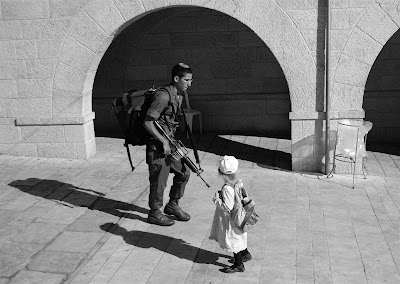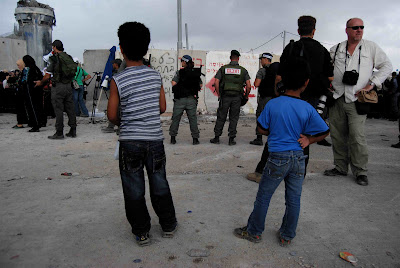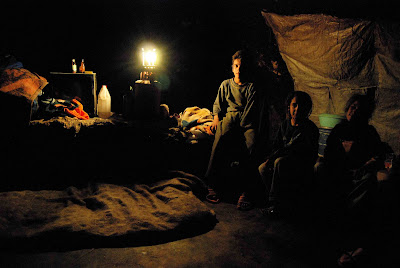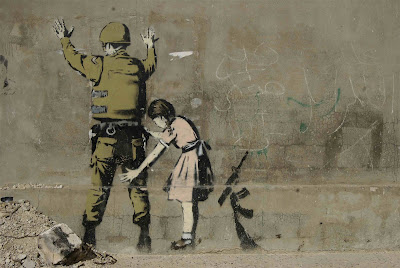
I’m back in drizzly Manchester in body now, but my experiences in Palestine continue to occupy my thoughts and I imagine they will continue to do so for quite some time yet.
One thing that bothered me while I was there was the question over what effect the tension, the bitterness, the human rights abuses and the omnipresence of the military uniforms and guns has on the children who grow up in such an environment.

Kids are kids, of course, and will adapt to most things…it is after all mainly down to the parenting. But one thing that I noticed was that the main game among little boys in the West Bank and East Jerusalem seems to be soldiers, and the toy of the moment is a gun. It’s well documented that youngsters have often been killed an injured by army gunfire, sometimes when throwing stones but often while doing nothing to attract attention.
While visiting one community that has been adversely affected by Israel’s segregation barrier, I had the opportunity to ask about this.
In this particular village, there has been hundreds of curfews and terrifying night raids launched by soldiers, in which families are woken at all hours by tear gas, rubber bullets, concussion bombs and other devices.

“The effect is considerable…our kids have been psychologically affected by the raids and the brutality. This has a big impact – in the schools they only talk about the army, the wall resistance and when they play they play army and Arabs and guns,” I was told by one activist.
“Many have been injured and arrested and imprisoned. My son was injured several times by rubber bullets in demonstrations – he was about eight years old at the time.
“This has a negative impact on their academic life – they can suffer post-traumatic stress, bed wetting and bad behaviour. “

How, under such circumstances, could parents ensure that they were not raising a generation filled with bitterness and hate for “the oppressor”, and as such more inclined to extremism – religious or otherwise?
“We have to tell our children that peace-making is possible,” came the response. “They see that there are many good Israelis because we have Israelis supporting us – they are the minority unfortunately but we hope the number will grow.”
